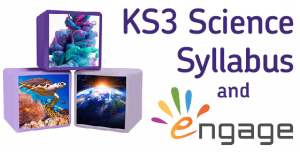News Story
Be interesting. It’s on the Syllabus.
Monday 14 Dec 2015
Syllabuses in science are not known for being interesting. They are typically shopping lists, itemising every fact and concept. The problem is, with all those items to check off, teachers spend most of the time drilling kids’ heads full of content instead of filling them with enthusiasm.
The new KS3 Science Syllabus from AQA is different. Jointly developed by the Open University (KMi)’s ENGAGE project for the European Commission, it’s a blueprint for a different kind of science teaching. Students have time to explore real-life controversial issues that affect their lives now, from genetics to climate change.
Our breakthrough design has two special ingredients, which reduce the content teachers need to cover, and show them how to put science in context. First are Big Ideas. Instead of presenting science as a list of facts and concept, our Syllabus sets it out as a set of principles and theories which have changed our view of the universe and ourselves. By reorganising the stuff in the National Curriculum around these 10 big ideas, we slashed the content by a half. Teachers can now see what their students really need to know.
Our second ingredient is a new section in each topic – Apply. Syllabuses usually just define knowledge. Which is strange, because applying what you know to new situations is what we really want students to be able to do. The KS3 Science Syllabus sets out in black and white the ways we want students to be able use their knowledge – including the real-life science students want to learn about.
And this is where ENGAGE fits in – making it easy for teachers to introduce science-in-news issues into the classroom. So Instead of just studying burning and writing equations, the Syllabus asks students to think about the applications and ENGAGE provides a lesson on the Diesel scandal. Students learn the chemistry by studying a diesel engine and wondering whether it’s a good idea to buy Diesel or not.
4000 UK science teachers already come to ENGAGE when they want to turn a conventional lesson into a provocative dilemma for students to solve. Now that these are on the syllabus, we hope these will become a regular part of students’ diets, and help to make learning science the exciting experience it should be.
Related Links:
Latest News
PhD Awarded for Groundbreaking Research on Game-Based Cyber Security Training
KMi at the Palace of Westminster: Exploring Blockchain for Society and Economy
OUAnalyse at the Digital Ethics Summit 2025: Advancing Responsible AI in Education

